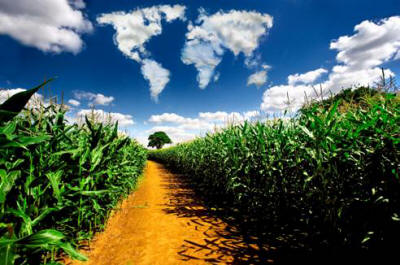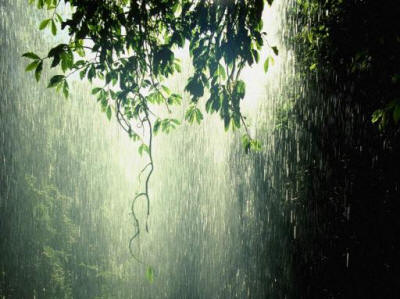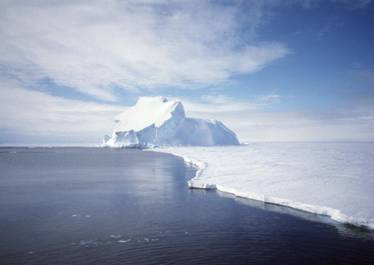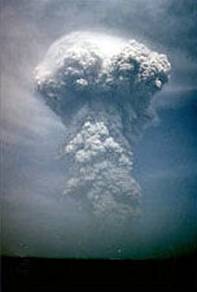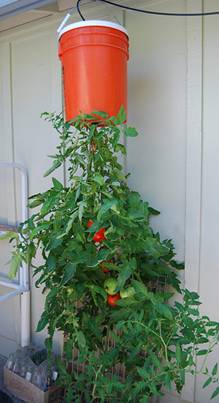|
from AgriculturalNaturalWorldNews-IMVA Website
Associated Press writers from around the world recently reported in:
The world we eat in is changing.
The situation is not good. Going into the year
2010 a billion people in our world were already going hungry and well on
their way to pandemic malnutrition and starvation. Conditions have rapidly
been getting worse for families around the world that are being battered by
surging food prices. Rising food costs are dragging more people into
poverty, fueling political tensions and forcing more and more people to go
hungry.
The U.N. Food and Agriculture Organization’s food price index - which includes grains, meat, dairy and other items in 90 countries - was up 22 percent in March from a year earlier.
In some Asian markets, rice and wheat prices are
20 to 70 percent above 2008 levels.
Well what it is bringing is less food to the world’s tables with vast tracks of land implantable this year and with the incredible food bowel of the Gulf of Mexico being destroyed by the oil volcano.
In Canada unusually heavy rain is forcing farmers to abandon approximately 1 million acres unplanted. About 30 percent of northeastern Saskatchewan, or more than 1 million acres designated for wheat, canola and barley, might go unplanted this year. Conditions for late spring planting are among the wettest ever on the Canadian Prairies.
The average temperature so far this May in Idaho
has been 48.1 degrees, a full 5 degrees below normal. A cold spring is not
helping matters at all in the agricultural sector.
More than 220,000 hectares of land - one 20th
of Hungary’s arable land - is under water
with about 50,000 hectares of farmland destroyed, causing estimated 300
million Euros damage to the farm sector. Neither local governments, nor
anyone else, has money to spare to repair damages with economies already on
their backs.
Meanwhile, the garlic crop isn’t doing any better.
A fungus - caused by the excess rain - is
destroying the garlic bulbs. At 18 people are dead in Arkansas following
severe flooding in the southwestern area of the state in Montgomery County.
And all the fresh water fish are contaminated
with mercury and fresh water fish don’t have the same levels of selenium to
protect themselves and us from the mercury toxicity.
Less Food Grows in the Cold
The mercury dipped to minus 1.7°C (29°F) on June 3rd in the Daegwallyeong region in Pyeongchang County, Korea, the lowest temperature in June since record-taking began in the region in 1971, the Korea Meteorological Administration said.
The cold wave began at the end of last month.
According to the state-run agency’s statistics,
the average temperature of the East Sea regions was 15.4 degrees,
2.8 degrees lower than the average for this
time of year.
Mainstream scientific experts are weighing in on
this incredibly crucial issue. Mainstream Fox News reported on Dr.
Don Easterbrook, emeritus professor of geology at Western Washington
University and author of more than 150 peer-reviewed papers, who has
unveiled evidence for his prediction that
global cooling is arriving on center stage
no matter what you might read to the contrary in the mainstream press.
The conference is presented annually in Chicago by the Heartland Institute, a conservative nonprofit think tank that actively questions the theory of man’s role in global warming.
Easterbrook made several stunning claims about the effects of the coming cold.
There will be twice as many people killed by extreme cold than by extreme heat, he predicted, and global food production will suffer because of the shorter, cooler growing seasons and bad weather during harvest seasons.
Another presenter at the conference, James M. Taylor, an environmental policy expert and a fellow at the Heartland Institute, said that global cooling is already happening.
Based on figures provided by the
Rutgers University Global Snow Lab, he
noted that snow records from the last 10 years exceeded the records set in
the 1960s and 1970s.
But the United Nation still believes that the world’s nations is a huge deal and that we have no choice but to join forces to stop global warming,
So much for the integrity of the UN!
Life and civilization does not get much more
ridiculous except of course when it comes to discussions about the safety
and efficacy of vaccines.
Humanity is in the beginning stages of a dramatic world crisis of epic proportions and even mother earth is raging with her volcanoes.
Looks like a nuclear bomb going off but actually it’s a volcano and there are many of them around the world who are blowing their tops putting vast amounts of materials into the atmosphere and this is destined to make the cooling trend worse making food even more difficult to grow in the extreme latitudes.
Major eruptions alter the Earth’s radiative
balance because volcanic aerosol clouds absorb terrestrial radiation, and
scatter a significant amount of the incoming solar radiation, an effect
known as “radiative forcing” that can last from two to three years following
a volcanic eruption.
It was so cold that summer that it snowed in June, July and August.
Eyjafjallajokull’s eruption won’t cause anything like that to happen, because it simply wasn’t strong enough but there is increased activity around the globe with strong eruptions and plumes going up to fifty thousand feet or more. The cumulative effect will be slightly cooling but it will take a really major eruption for this type of cooling to become dramatic.
One is threatening from an even larger volcano right down the block from Eyjafjallajokull, which just this week is demonstrating increasing earthquake activity.
For a frightening view of where we are heading
with the oil disaster please see Lindsey Williams on the Alex
Jones Show.
And would you believe that in the news this
month we do read about an international group being locked away for 365 days
to simulate such a voyage. I kid you not. It’s amazing the things people
still have money for.
Instead of my trinity of super star medicines
they are being joined by Rejuvenate making a crystal foursome that will
cover so much medical and healing territory it will take me books to talk
about it. Read my new essay on Super Food for Cellular Survival and Cellular
Stress and Adaptive Cellular Capacity for starters.
I cannot think of a better survival food because:
I personally will be really happy and feel more secure when I have six months of Rejuvenate on hand and this week we are also beginning to plant everywhere we can around the house and will also do some upside down hanging gardens.
|

